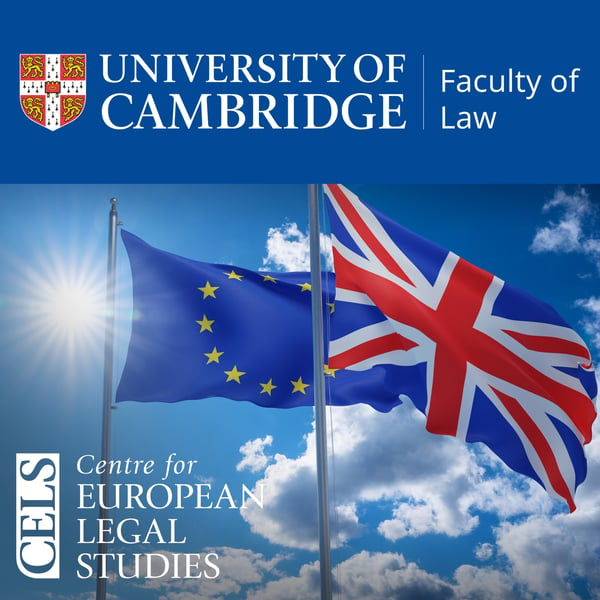'Session 3: Goods and Services' - Gareth Davies: CELS Brexit Symposium
Cambridge Centre for European Legal Studies (CELS) Podcast
Faculty of Law, University of Cambridge
0 • 0 Ratings
🗓️ 14 March 2019
⏱️ 23 minutes
🧾️ Download transcript
Summary
Transcript
Click on a timestamp to play from that location
| 0:00.0 | Thank you very much. |
| 0:05.0 | A little taken aback to see Lawrence concluding by suggesting the royal family take out a hit on the Prime Minister. |
| 0:11.0 | In these surreal times, frankly, it doesn't even seem the strangest possibility going around. |
| 0:19.0 | I just hope there's nobody in the room from the Daily Mail. It seems unlikely this university. |
| 0:24.6 | Anyway, it's a pleasure to be here. Thank you for allowing me to be here to talk about the subject. |
| 0:30.6 | We were actually asked to talk about the impact of the proposed arrangements. |
| 0:34.6 | Which proposed arrangements? That is the question. It was like, which proposed arrangements? |
| 0:38.3 | That is the question. |
| 0:44.6 | It is strange to have a situation where one genuinely has no idea of what the legal situation made in two days or two weeks or two months or two years or two decades, right? |
| 0:49.0 | Because almost any direction is quite imaginable. |
| 0:53.0 | So all I did was pick a few possible scenarios |
| 0:56.5 | and consider some indications of them for trade. |
| 1:00.6 | And those three are Norway, as they like to call it in this country, |
| 1:04.8 | and Mays deal and a no deal. |
| 1:07.1 | And I've just got some remarks on them |
| 1:08.8 | and they've given them an excuse to explore some issues. |
| 1:12.2 | I mean, Norway, Norway seems dead, and now it's come back to life. |
| 1:16.7 | And that does seem to a bit of the theme of the whole Brexit process, doesn't it? |
| 1:19.7 | In a way, it was mentioned enthusiastically in a little desperation just after the vote, |
| 1:25.1 | and then it seemed completely impossible. |
| 1:28.7 | And in some ways, it is, of course, a betrayal of the vote. For an EU lawyer, you think, ah, you're practically in. But at the |
| 1:34.0 | same time, why did people vote? I don't think people voted because they were unhappy with the |
... |
Please login to see the full transcript.
Disclaimer: The podcast and artwork embedded on this page are from Faculty of Law, University of Cambridge, and are the property of its owner and not affiliated with or endorsed by Tapesearch.
Generated transcripts are the property of Faculty of Law, University of Cambridge and are distributed freely under the Fair Use doctrine. Transcripts generated by Tapesearch are not guaranteed to be accurate.
Copyright © Tapesearch 2025.

